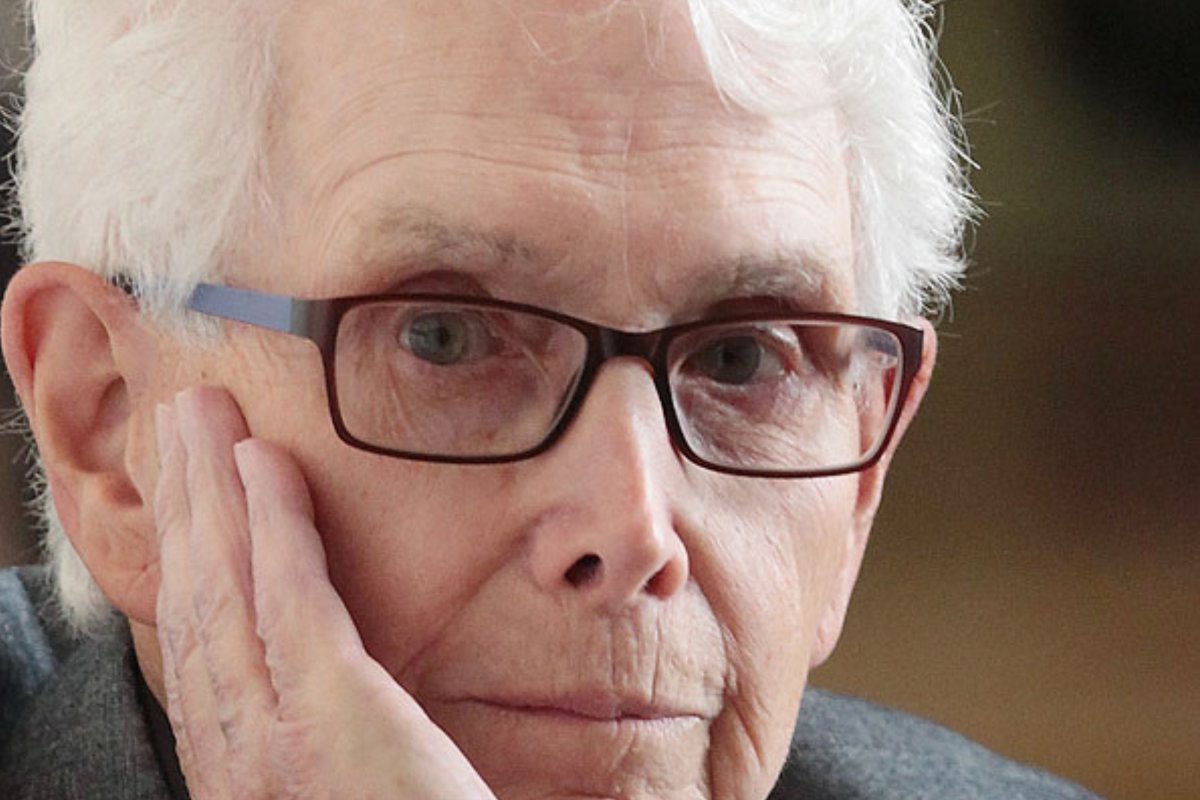While growing up, I spent a lot of time with my grandmother. When I was four years old, I showed an interest in cross-dressing. My grandmother made me a purple dress and didn't tell my parents about it—she said it would be our little secret.
For two and a half years, whenever I was at her house, I would always wear the dress. She would affirm me by telling me how cute I looked—she never complimented me as a boy, only when I was dressed as a girl. Being very young, I wanted to please my grandma, and I enjoyed her speaking nicely about me.
Roughly two and a half years after I started cross-dressing with my grandma, I secretly took the purple dress home and hid it in my bottom dresser drawer.
My mom found the dress. When she asked who made it, I told her it was her mother—my grandma. This revelation led to a conflict between my mom and dad because they didn't know that my grandma was encouraging this behavior.
I felt like their fight was my fault because I didn't keep the "secret." I felt like my parents were fighting because of me—I was ashamed.

I was born and raised in the early 1940s in Southern California, a time when the U.S. was in turmoil due to the bombing of Pearl Harbor and its ensuing involvement in the world war. It was a stressful time for families.
My mom was only 19 when she became pregnant with me. She wasn't equipped to deal with the war and having two children. My mom and I never got along, and she never seemed to like me throughout my entire life, as opposed to my brother.
My dad, on the other hand, cared about his boys, as he would say. However, he was very strict about discipline and would use a hardwood floor plank to discipline me.
Having a mom who never showed much affection or love, a grandmother who encouraged me to dress as a girl, and a disciplinary dad influenced my decision to transition later on in life.
Additionally, my uncle—my dad's adopted brother—began sexually molesting me when I was roughly eight years old, which was another significant factor in my decision to transition.
In hindsight, it's clear that what I experienced as a child is known today as an adverse childhood experience (ACEs). Studies from Kaiser Permanente and psychologists have shown that childhood trauma can alter a child's brain to the point of distorting their identity.
I needed a trauma therapist to help me deal with the trauma of the war, the sexual abuse that occurred, and my relationship with my family.
By the time I was 13, I discovered that I wanted to live in a woman's body. I was secretly identifying as Crystal West, but I was the only one who knew it—this was in the 1950s, there was no terminology to describe how I was feeling.
During that time, Christine Jorgensen, a soldier, became famous for undergoing surgery in Denmark and made headlines in the Los Angeles newspaper. When I heard about Christine Jorgensen, I thought: "That must be me, that must be my issue."

I was never homosexual. I got married, had children, and pursued a career, but I was still grappling with a whirlwind of emotions. I sought help from Dr. Paul Walker in San Francisco, a renowned gender specialist.
During my first visit to his Union Street office, I opened up about my childhood trauma and my experiences with cross-dressing. He diagnosed me with what would later be known as gender dysphoria.
Despite my sharing my history of abuse, Dr. Walker felt it was irrelevant to my situation. His prescriptions were hormones and surgery.
I started hormone therapy in 1980 and underwent surgery in 1983. I divorced my wife three months before the surgery, marking a catastrophic period in my life.
After the surgery, I lived as a woman called Laura Jensen for eight years. I thought my problems had disappeared. There was a time when I believed I was better.
But as I reflected on my past and the drastic steps I had taken, I realized I was trying to justify my actions and make it work. I was still battling the demons of my early childhood, attempting to erase them by changing who I was.
I've come to understand that I never truly wanted to be a woman—I was desperate for the pain of my childhood to disappear.
I turned to alcohol, drugs, hormones, and surgery in an attempt to numb the pain. There was a brief period when these measures seemed to work, but reality soon set in. I was still plagued by the same unresolved issues from my past.
My decision to detransition was a gradual process, but there was a pivotal moment that changed everything for me. I was sitting in my car one day, identifying as Laura Jensen, when I realized that identifying as transgender wasn't a life, but a mask over my life.
It felt like living in an identity that was a prison, an encapsulation to escape all the pain.
Following this realization, I sought help from my surgeon and Paul Walker to restore my birth record. I asked them to submit an affidavit to The Superior Court of California about what hormones and surgery actually do to a person.
They admitted in their statement to the court that hormones and surgery don't ever change anybody's gender. They confessed that it had never been effective at changing anyone's gender.
In private conversations, they acknowledged that no one in world history has ever biologically changed their gender. The only thing that changes is their persona and their outward appearance. It's akin to a movie actor taking on a role, putting on a costume, and appearing to change their appearance to play a different role.
This revelation was startling. I realized that this was all fake. It upset me to understand that hormones and surgery are ineffective at changing anybody's gender.
I then began seeing further studies that affirmed this. In 2004, the U.K. Guardian published a research study from the University of Birmingham that stated that there is no robust scientific evidence that suggests gender reassignment surgery is clinically effective. This study even referenced a correlation between hormone therapy and an increase in the risk of suicide.
During my session with Dr. Walker, he suggested that I needed hormones, surgery, and a letter for gender reassignment surgery. However, in hindsight, I believe he should have considered my history of sexual, physical, and emotional abuse.
If he truly wanted to help, he would have recognized that hormones and surgery wouldn't be beneficial for me given my past trauma.
Yet, I've found that even today this consideration is often overlooked. I haven't come across a single person who has been denied hormones and surgery, regardless of their life circumstances.
Through my charity, Sex Change Regret, I've personally worked with thousands of individuals. They all echo the same sentiment: If someone had just listened to the pain of their childhood or acknowledged their addiction to pornography, they wouldn't have opted for hormones and surgery.
I'm one of many who regrets undergoing this process. I'm currently working with someone who, 20 years after their surgery, shares a story very similar to mine.
I do not now use the term "detransition" because, after seeing all of this research, I realized that nobody ever truly transitions, so nobody can detransition. I prefer to say that I got my real life back.
Coming off the hormone pills allowed me to gain a sense of freedom. I felt liberated and began to think more clearly. But it took a while for my body to readjust. It was somewhat difficult.
You have to go through certain regimens, like determining how much to take without causing high anxiety. You must work with a doctor and an endocrinologist to help monitor the process.
For me, to get all the way through to where I finally leveled out and had the right amount in my system probably took over a year, maybe longer. It was a trial-and-error process.
I don't want people to think that they can instantly change back, and that it's simple. It can be very troubling because often when people are going back they can take too many hormones, which can cause them a great deal of anxiety and trouble.
I advise people to come off the hormones slowly and go into it slowly when they're trying to get their life back. Do it with a doctor, don't go online for medical advice.
I want people to understand this because I see so much of it every day. I genuinely care for all these people who are struggling, but I don't agree with the fact that the only way to provide care for someone is by filling them with hormones or changing their body parts.
I think we need to step back and talk about the deeper issues that are causing people difficulty, like obsessive-compulsive disorder, bipolar disorder, PTSD, autism, or any other underlying mental health conditions.
We need to be kind and careful, step back, and do a much better job at evaluating who is an appropriate candidate to transition, and who is not.
Walt Heyer is the founder of Sex Change Regret, a charity with resources for people who are interested in "detransitioning", or who want to find out more about the implications of sex change.
All views expressed in this article are the author's own.
As told to Newsweek's associate editor, Carine Harb.
Do you have a unique experience or personal story to share? Email the My Turn team at myturn@newsweek.com.
Uncommon Knowledge
Newsweek is committed to challenging conventional wisdom and finding connections in the search for common ground.
Newsweek is committed to challenging conventional wisdom and finding connections in the search for common ground.
About the writer
Walt Heyer is the founder of Sex Change Regret, a charity with resources for people who are interested in "detransitioning", ... Read more
To read how Newsweek uses AI as a newsroom tool, Click here.





